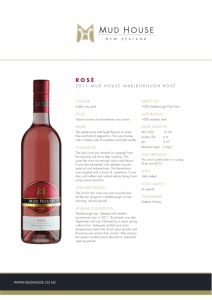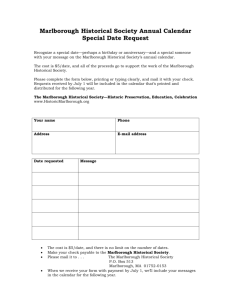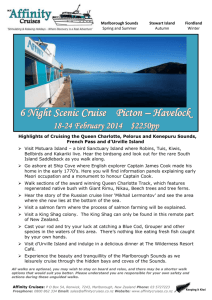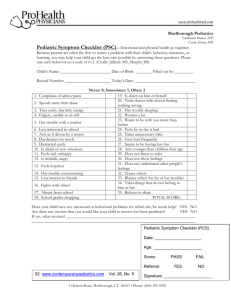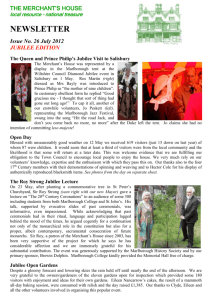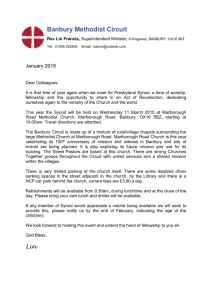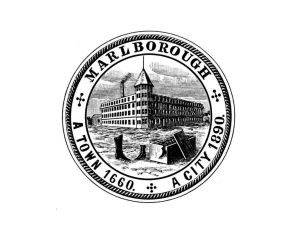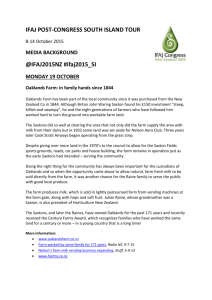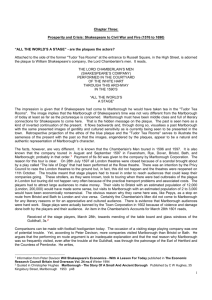Marlborough – coast, wine and food
advertisement
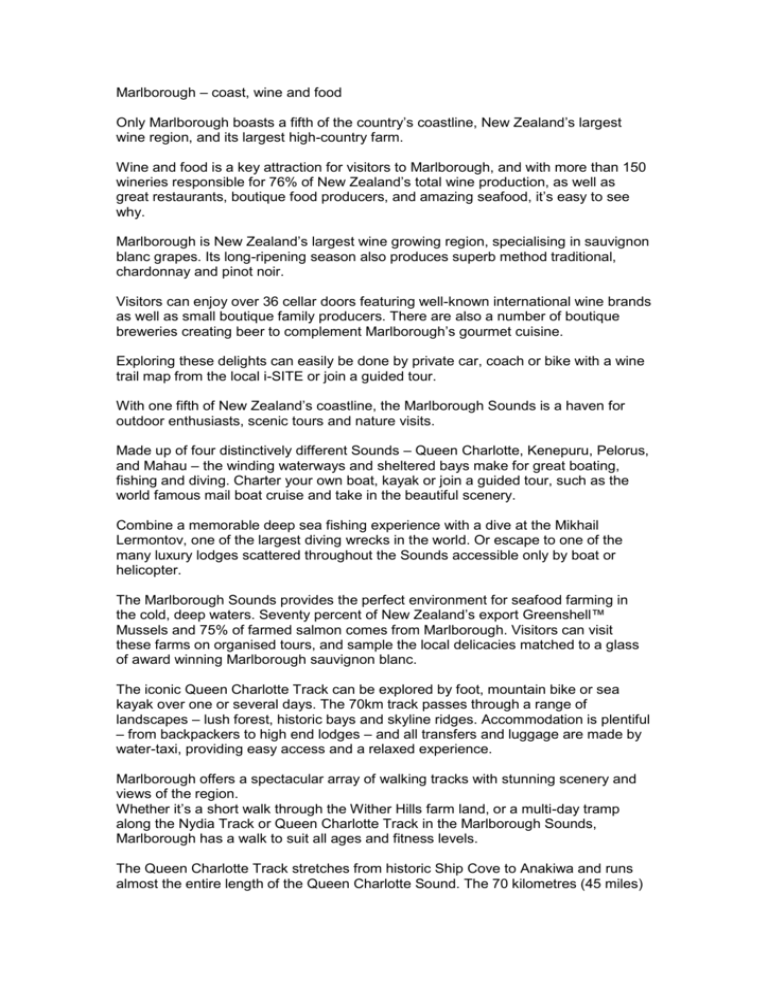
Marlborough – coast, wine and food Only Marlborough boasts a fifth of the country’s coastline, New Zealand’s largest wine region, and its largest high-country farm. Wine and food is a key attraction for visitors to Marlborough, and with more than 150 wineries responsible for 76% of New Zealand’s total wine production, as well as great restaurants, boutique food producers, and amazing seafood, it’s easy to see why. Marlborough is New Zealand’s largest wine growing region, specialising in sauvignon blanc grapes. Its long-ripening season also produces superb method traditional, chardonnay and pinot noir. Visitors can enjoy over 36 cellar doors featuring well-known international wine brands as well as small boutique family producers. There are also a number of boutique breweries creating beer to complement Marlborough’s gourmet cuisine. Exploring these delights can easily be done by private car, coach or bike with a wine trail map from the local i-SITE or join a guided tour. With one fifth of New Zealand’s coastline, the Marlborough Sounds is a haven for outdoor enthusiasts, scenic tours and nature visits. Made up of four distinctively different Sounds – Queen Charlotte, Kenepuru, Pelorus, and Mahau – the winding waterways and sheltered bays make for great boating, fishing and diving. Charter your own boat, kayak or join a guided tour, such as the world famous mail boat cruise and take in the beautiful scenery. Combine a memorable deep sea fishing experience with a dive at the Mikhail Lermontov, one of the largest diving wrecks in the world. Or escape to one of the many luxury lodges scattered throughout the Sounds accessible only by boat or helicopter. The Marlborough Sounds provides the perfect environment for seafood farming in the cold, deep waters. Seventy percent of New Zealand’s export Greenshell™ Mussels and 75% of farmed salmon comes from Marlborough. Visitors can visit these farms on organised tours, and sample the local delicacies matched to a glass of award winning Marlborough sauvignon blanc. The iconic Queen Charlotte Track can be explored by foot, mountain bike or sea kayak over one or several days. The 70km track passes through a range of landscapes – lush forest, historic bays and skyline ridges. Accommodation is plentiful – from backpackers to high end lodges – and all transfers and luggage are made by water-taxi, providing easy access and a relaxed experience. Marlborough offers a spectacular array of walking tracks with stunning scenery and views of the region. Whether it’s a short walk through the Wither Hills farm land, or a multi-day tramp along the Nydia Track or Queen Charlotte Track in the Marlborough Sounds, Marlborough has a walk to suit all ages and fitness levels. The Queen Charlotte Track stretches from historic Ship Cove to Anakiwa and runs almost the entire length of the Queen Charlotte Sound. The 70 kilometres (45 miles) of spectacular walking track passes through historic sites, secluded bays, skyline ridges and coastal bush. The Queen Charlotte Track can be walked all year round with the most popular season being from November to May. The track is suitable for walkers of all ages with a moderate level of fitness. Both freedom and guided walking options are available and both allow you to have your packs carried for you from any of the access points along the track by arrangement with transport operators. Most sections of the track can be accessed by water taxi transfer allowing travellers to do a day walk if time is short. Local operators provide half and full day options through to multi-day packages offering walking, mountain biking and sea kayaking combinations including accommodation and water transfers. Strategically placed throughout the 70km length of track is a range of accommodation including Department of Conservation campsites, backpackers, homestays, hotels and resorts. The Marlborough Sounds is home to a range of New Zealand native wildlife living on predator-free islands, including the King Shag, tuatara, gecko, kiwi, saddleback, native pigeons and yellow-crowned parakeets (kakariki). The surrounding seas hold dolphins, stingrays, seals, little blue penguins and even orca on their seasonal migration. There are a number of wildlife-focused tours available – knowledgeable skippers and guides share interesting facts and local information. Several nature cruises visit Motuara Island, one of four reserve islands in the Queen Charlotte Sounds uninhabited by humans. Visitors can walk to the top of the island, via penguin nesting boxes, curious robins and fantails, gaining glimpses of saddlebacks, tui and kakariki along the way. The Kaipupu Point Sounds Wildlife Sanctuary, a few minutes by boat from Picton, is worth a visit. Here you will see native birds such as fantail, kereru, weka, silvereye, grey warbler, tui, bellbird, and kingfisher. Pelorus Bridge Scenic Reserve (Te Hoiere), is home to one of Marlborough’s last remaining populations of bats, roosting in the large forest around the bridge and camp site. Pelorus Bridge also has one of Marlborough’s last remaining stands of lowland podocarp forest, a fragment of the primeval forest that cloaked much of the lowlands of the region. Walk, kayak or enjoy a 4WD tour around the historic Wairau Lagoon, spotting more than 90 bird species nesting at New Zealand’s oldest discovered site of occupation. This shallow estuarine waterway of channels, sand spits and islands covers about 2,400 hectares. The islands are low and flat, ideal for nesting birds such as swan, black-backed gull and royal spoonbill.
